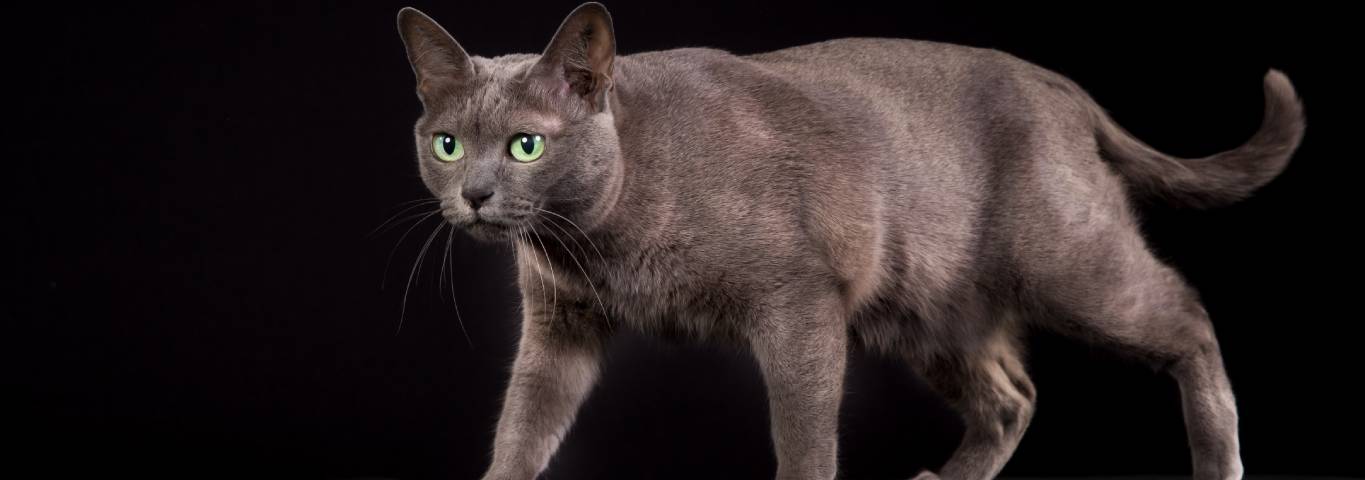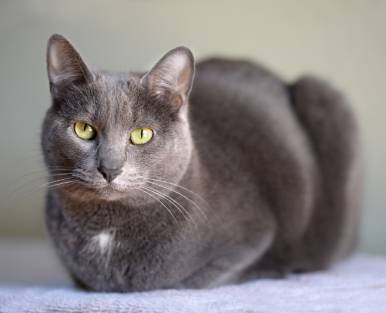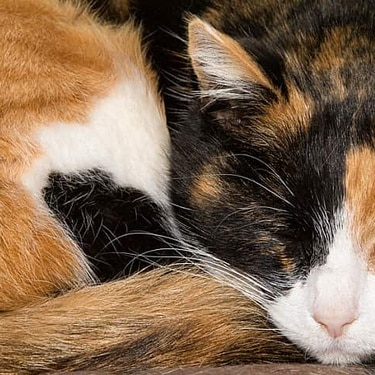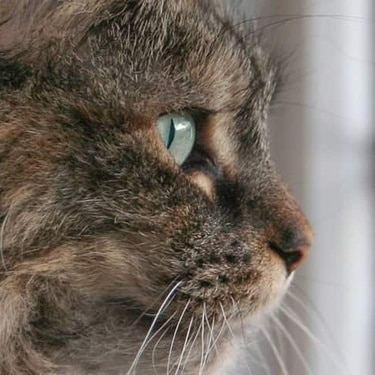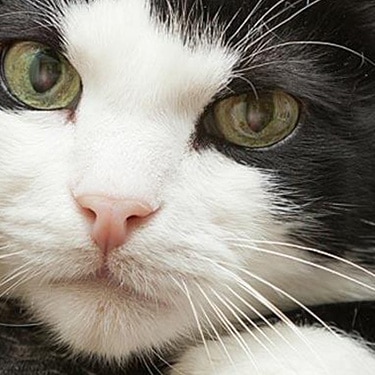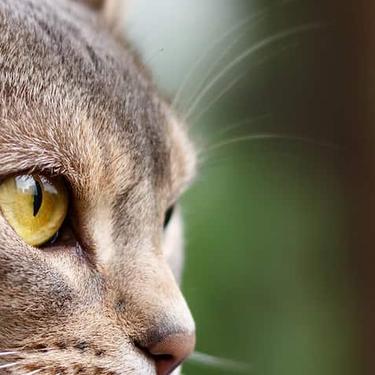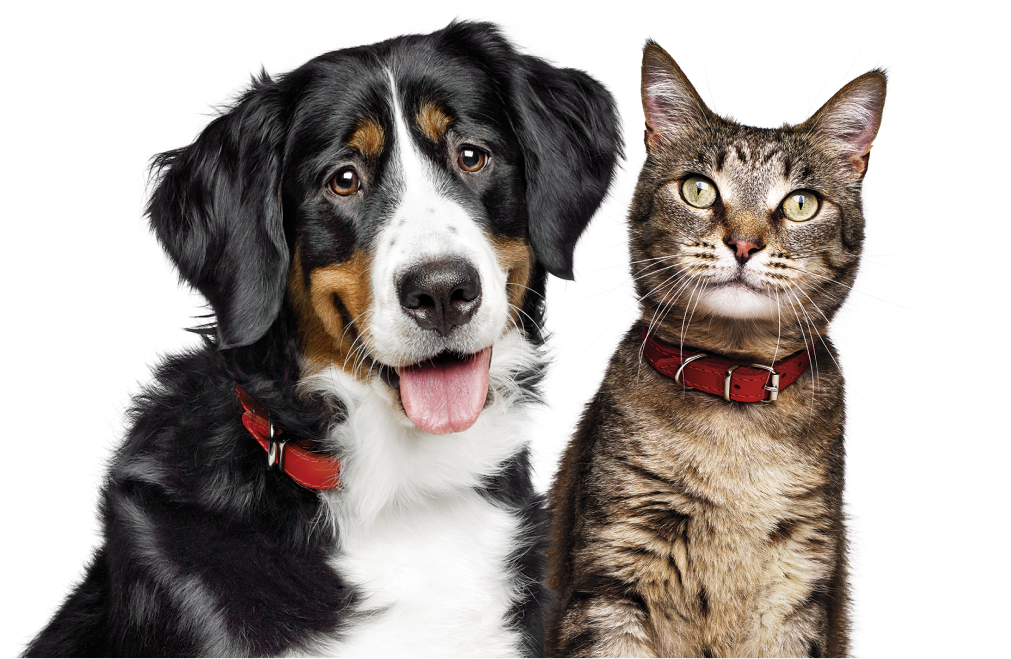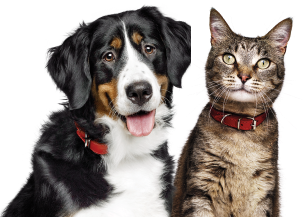Affectionate, gentle and very loving, Korat cats often build strong bonds with their companion and enjoy being a close knit part of the household. They are curious and intelligent and love to join you around the home to see what you’re up to. Because of this, they also favour mentally stimulating cat toys as well as climbing posts where they can get a better view of what you’re doing.
Their sweet nature makes Korats a favourite for families with older children and even with other pets. Even though individual Korats will have varying degrees of tolerance of noise, they are generally a cat breed that is sensitive to their surroundings and may even become startled if exposed to excessive noise. They may need a quiet and secure place they can retreat to in busier homes.
Korat cats are wonderful companion cats. They are loyal, loving and truly enjoy being close to their owners, so they will certainly expect constant interaction and attention. They may even follow you around the house thanks to their curious and inquisitive nature, as well as pure nosiness as to what you’re doing.
This cat breed will need regular playtime and they often love nothing more than a scratching post and interactive toys. They do generally enjoy gentle play though, with more mentally stimulating games. Whilst they are definitely known for their playfulness and high energy, this yearning for companionship can also make them a great cat for cuddles. They don’t enjoy being alone all too much, so it’s important to have dedicated time to bond with your feline friend.
Even though every Korat cat has a personality all of their own, generally they will enjoy a calm home environment and may not always be a first choice for louder households. Thanks to the short and single-layered coat of Korats, there is minimal grooming required but a regular brushing session will help to remove any loose hairs.
Korat cats are happy being either an outdoor or indoor cat and due to their distinctive appearance, many Korat owners choose to keep them as indoor cats for their protection. Indoor Korat cats will need plenty to keep them occupied though with an enriching environment which will keep them stimulated and happy.
The Korat cat breed originates from Thailand and is one of the oldest and most celebrated cat breeds in Thai Culture. Thanks to its beautifully unique silvery-blue coat, Korats are also known as “Si-Siwat” which some say translates from ‘color of the Sawat seed’ and other modern translations claim the name derives from ‘good luck cat’. Regardless of the precise meaning, there is no doubt that Korats have been treasured for centuries in Thailand and are considered a sacred cat to bring you prosperity.
According to folklore, Korats were so lucky that they were considered special gifts. Originally capturing the attention of Thai nobility and monks thanks to their distinctive coat and captivating green eyes, this historical association with affluence remains today, even if they no longer carry the same religious or mystical significance as in Thai culture.
In recent history, the Si-Sawat cat eventually gained international recognition in the 1950s as more international cat associations were established, and more Korats were transported from Thailand to the western countries.
Korat cats now play a valuable role in cat shows and exhibitions, where their beauty and breed standards are showcased and appreciated. They contribute to the diversity and richness of the feline world, while their ancient lineage and cultural significance add a touch of history and mystique to their presence in modern cat fancy.
Health Concerns:
Korat cats, like many purebred cats, have a higher risk of particular genetic diseases as a result of their limited gene pool. However, this isn’t to say that all Korat cats will become unwell.
The most frequently seen health issues seen within this cat breed include:
Polycystic Kidney Disease (PKD) - a genetic condition which causes kidney dysfunction as a result of cysts. Symptoms to look out for include increased thirst, decreased appetite, weight loss, and unusual tiredness.
Hypertrophic Cardiomyopathy (HCM) - this heart disease thickens the cat’s heart muscles and can cause heart failure. If you notice any breathing issues, coughing or fainting, it’s time to consult veterinary help.
Gangliosidosis - an inherited enzyme deficiency that affects the nervous system, leading to paralysis. Owners should check that the breeder's cats have been tested before purchasing.
If you notice any of these signs or have concerns about your cat’s health, consult a veterinarian as soon as possible. It is noteworthy that Korat cats are generally considered a healthy breed and they do not have a reputation for having health problems as with some other cat breeds.
Regular screening and wellbeing checks are the best way to discover any health issues early, even before visible symptoms appear. A healthy, balanced diet and safe home environment is the best way to ensure the overall health and wellbeing of your Korat cat.












